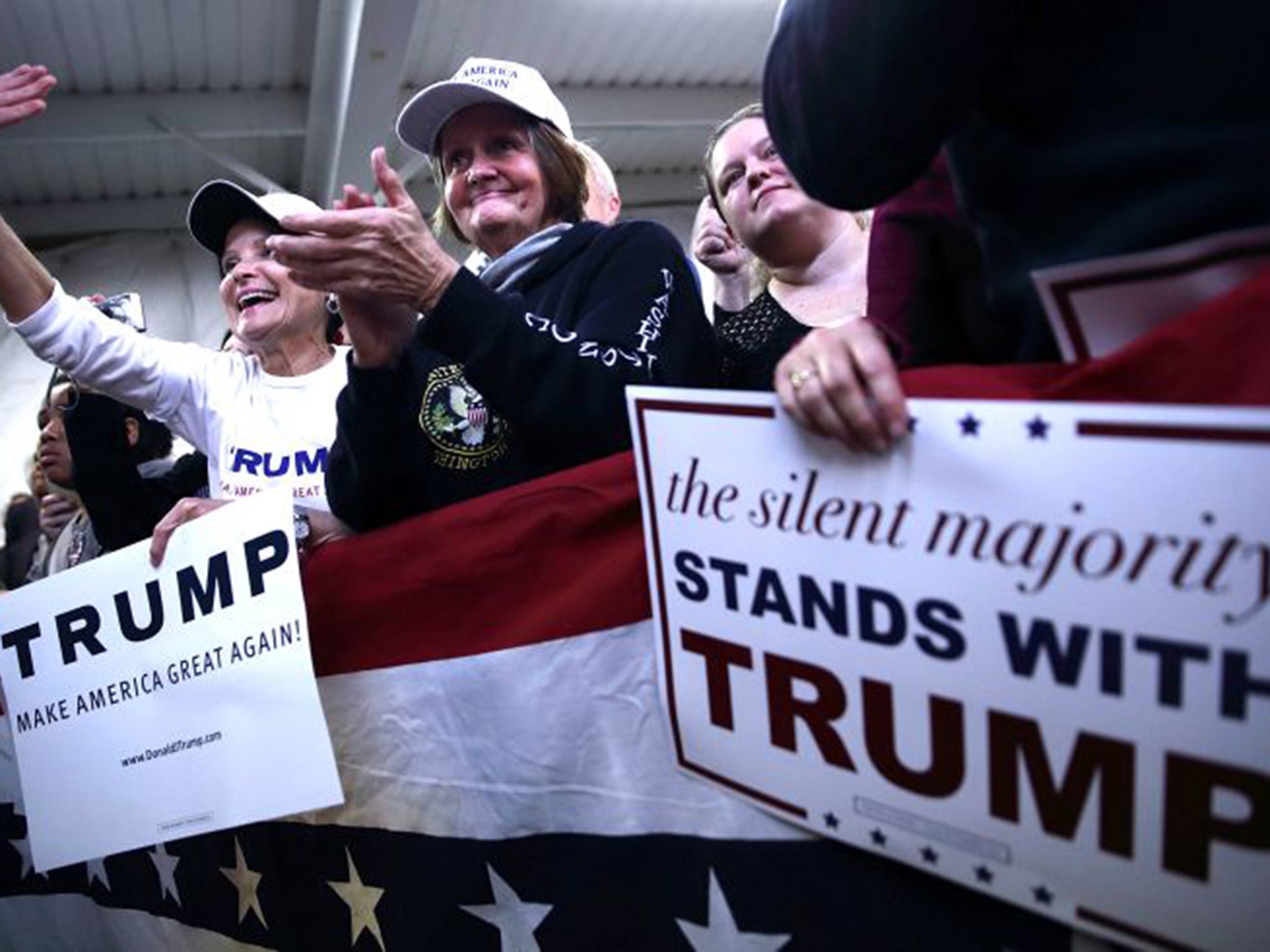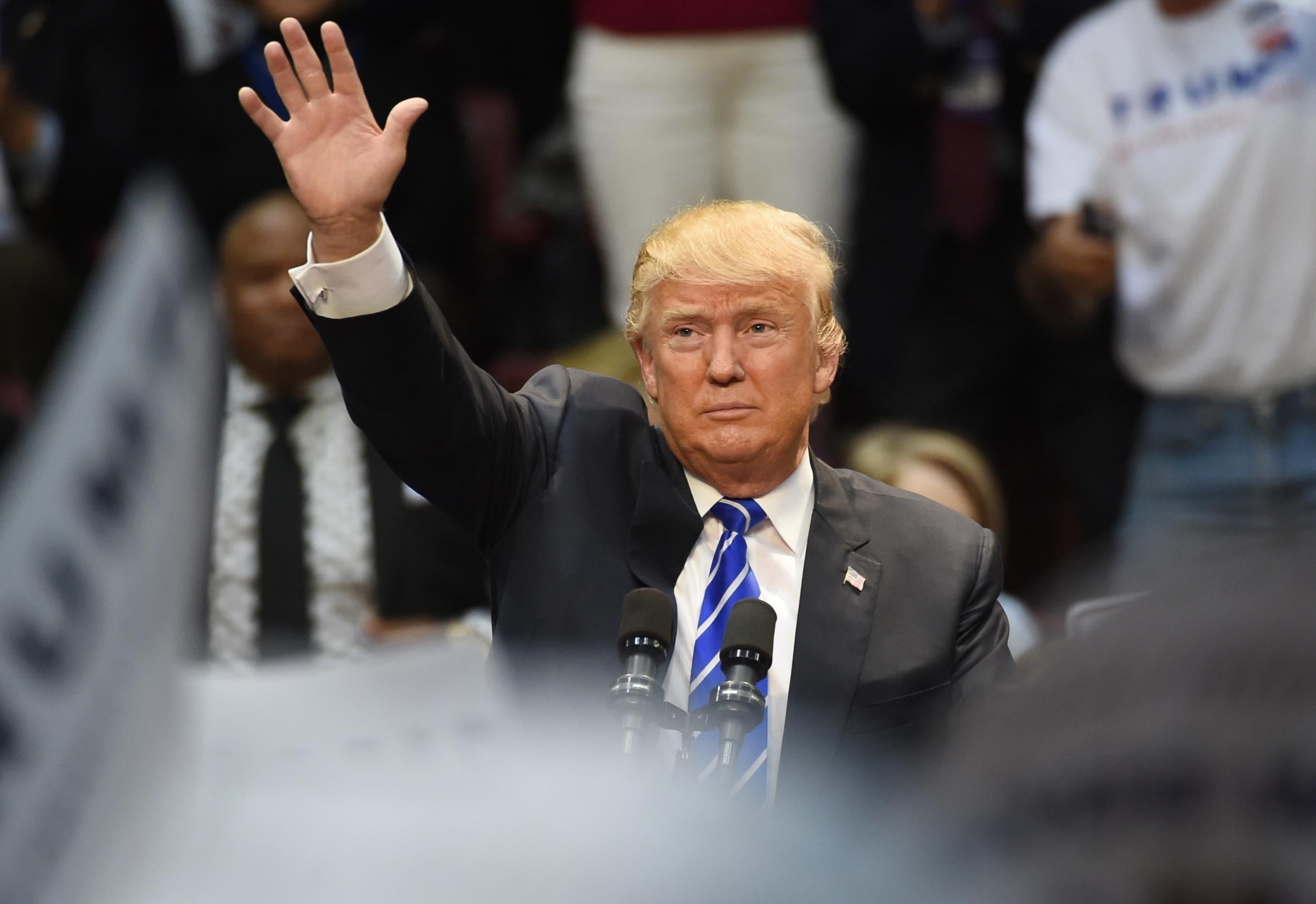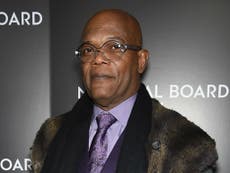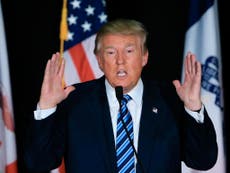Donald Trump railing against political correctness seems to have struck a chord with Americans of every persuasion
Out of America: The bigoted bully's followers are Republicans, but also independents as well as blue-collar Democrats who never bought the Obama message


Something long overdue is happening here. The worm is turning against political correctness. For that, thank the excesses of self-appointed student thought police at some of the US’s most venerable universities. But, though it pains me to say it, thank also Donald Trump and the wrecking ball he has taken to accepted norms of political campaigning.
I’m no lover of Trump. He’s a narcissist, a bully and a bigot. Nonetheless he strikes a chord, and nowhere more so than in his railings against political correctness. The specifics may be odious: the ad feminam tirades; the callous disparagement of the war record of the Republican party grandee John McCain, who was captured and tortured by the North Vietnamese. But his broad theme is persuasive. The country, he says, is being suffocated by political correctness imposed by a cross-party elite. And Americans of every persuasion seem to agree.
In a fascinating poll last year by Fairleigh Dickinson University in New Jersey, no less than 68 per cent said political correctness was a “big problem” in the US. Not just Republicans, but Democrats, independents and even minorities agreed. True, support dropped notably when Trump’s name was attached. But other Republicans are following his example. They know a winning issue when they see one.
The PC controversy, turns on such practices as “affirmative action”, which ensures minority representation on college campuses and has, of course, been with us for decades. So too has PC’s brother, the language of euphemism, in which America is a global leader. This is the land of Pentagon-speak, where mass civilian casualties are sanitised as “collateral damage;” the land where “appropriate” and “inappropriate” have supplanted those quaint and obsolete notions of right and wrong, and where you don’t grow old but become a “senior citizen”.
But the latest campus goings-on have added a new dimension to the debate. A few weeks ago, I wrote in this space about the uproar among minority Yale students over offensive Halloween costumes, after a university official dared wonder in an email whether there was no longer any room for the young to be “a little bit obnoxious” and whether people could not simply ignore or reject things that bothered them.
Ignore? Not a bit of it. The official was castigated, and the clamour to make university a “safe space” merely intensified. So too did demands by many college student bodies for advance warning about courses that highlighted ideas that might be considered controversial or offensive. And so too did the fuss over so-called “micro-aggressions” – small, perceived slights, mostly sexist or racist, and often unintended.
Thus we slide into the related debate over America’s supposed culture of victimhood, first popularised by the late Australian art critic Robert Hughes in his 1993 book Culture of Complaint. Its thesis was that the country was turning into a nation of whiners and spoilt children, where racial and other minority groups claimed to be victim of some injustice or other.
Political correctness has been one way of coping with these grievances. But the airing of one group’s complaints quickly inspired another’s: “if this lot is being protected,” ran the refrain, “why can’t we?”. And so, it is argued, the PC blight spread, its most absurd manifestation perhaps the case of poor little rich boy Ethan Crouch, who killed four people in a drunken driving incident in 2013.
He was placed on probation after his lawyers argued that he suffered from “affluenza”, a supposed mental sickness caused by financial privilege. Now he’s back in the news, having taken off for Mexico with his mother in breach of his probation terms, only to be arrested there just after Christmas. Currently, Crouch is fighting deportation back to the US, claiming that the Mexican authorities violated his human rights.
However, none of this fully explains why Trump’s anti-PC fulminations resonate so strongly. There was one group which felt it had missed out on the political correctness party, indeed, that it had been victim of it. Call them what you will: the old Nixonian “silent majority”, the disgruntled “Reagan Democrats” of the 1980s, or voters whom Barack Obama wooed in his first White House campaign, who had lost their jobs due to globalisation.
They tend to be white, without a college degree. They can’t find work – or at least work that pays half-way decently and has the benefits they were used to. They consider themselves the salt of the American earth. Yet they have to listen to voicemail services that tell them to press “1” if they want a reply in English. They feel obliged to wish people “Happy Holidays” instead of “Merry Christmas” and feel they have been betrayed by a system in which they have no voice.
At which point, enter Donald Trump. He speaks his mind. He says things they wish they could, but which would normally be deemed politically incorrect. At last, someone is calling a spade a spade. His followers are Republicans, but also independents as well as blue-collar Democrats who never bought the Obama message.
Yes, I know the counter-argument. The US is a multicultural country where attacks on PC are often attacks on minorities and anyone else the speaker doesn’t like. And what of the First Amendment, that unmatched constitutional guarantee of free speech? Unlike Britain, it is virtually impossible here to libel a public figure.

However, without a measure of self-imposed restraint, free speech can turn into hate speech and mob incitement, and Trump’s rants against immigrants, Mexicans and Muslims press right up against that fine line. Complaining – or PC, call it what you will – functions as a dam. The real menace to free speech is when people complain about the complaining.
That is the case for political correctness. The pendulum however has surely moved too far. A world stripped of PC would be blunter, harsher but more honest. And it’s a world Americans increasingly seem to want.








Join our commenting forum
Join thought-provoking conversations, follow other Independent readers and see their replies